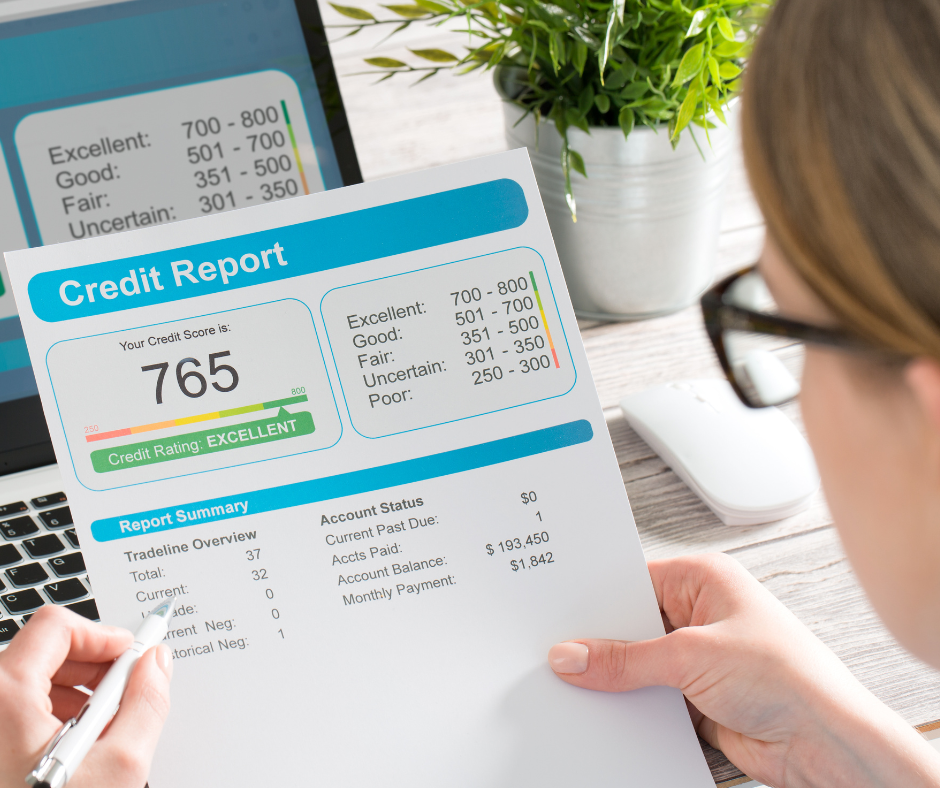Credit score vs credit report: what you need to know before applying
Wondering about the difference between a credit score vs credit report? Learn what sets them apart, why both matter, and how to check them.
The terms credit score vs credit report are often used interchangeably, yet they refer to two very different things.

When you’re thinking about applying for a credit card, one of the first things you’ll likely hear is “Check your credit!” But what does that actually mean? If you’re confused, getting clarity now can help you make more informed decisions when applying for credit.
The difference between a credit score vs credit report
Your credit report is a detailed record of your credit history. It includes accounts you’ve opened, how much you owe, your payment history, and even hard inquiries from when lenders checked your credit. Think of it like a school transcript, it shows your academic history, not just your final GPA.
On the other hand, your credit score is a three-digit number derived from the information in your credit report. It ranges from 300 to 850 and acts like a snapshot of your creditworthiness. Lenders often use this number to quickly assess the risk of lending to you.
In simple terms, the credit report is the full story. The credit score is the headline.
Why this matters when applying for a credit card
If you’re applying for a credit card, understanding the difference between these two tools is essential.
A common frustration among applicants is being denied a card even though they “thought they had good credit.” In many cases, the issue lies in an overlooked detail buried in the report, like a missed payment or high credit utilization, that is quietly dragging down their score.
Credit card companies use both the score and the report to evaluate applications. While the score gives them a quick read, they dig into the report for context.
For example, two people could have the same credit score but very different histories. One may have a solid record with low balances, while the other has recent delinquencies. That context can make or break an approval.
How to check and monitor both
You’re legally entitled to one free credit report each year from each of the three major credit bureaus: Equifax, Experian, and TransUnion. Sites like AnnualCreditReport.com make it easy to access them.
Your credit score, however, isn’t always included in those reports. Some banks, credit card issuers, and personal finance apps offer access to your score for free. Just make sure you’re checking the same type of score (FICO vs. VantageScore), as lenders may use different models.
Regular monitoring helps you catch errors, track your progress, and avoid surprises when applying for credit.
Smart steps before you apply
Before submitting any credit card application:
- Review your credit report for accuracy.
- Know your current credit score.
- Pay down high balances if possible.
- Avoid applying for multiple cards in a short time, this can lower your score due to hard inquiries.
By understanding your full credit picture, you can apply more strategically and minimize potential rejections.
Credit Score vs credit report: why this one distinction could save you time and stress
Knowing the difference between a credit score vs credit report may seem like a small thing, but it’s a powerful piece of the financial puzzle. It equips you to spot red flags, take meaningful action, and avoid the frustration of not knowing why a card application didn’t go your way.
Before you click “apply,” take a few minutes to get clear on both, your future self will thank you.






